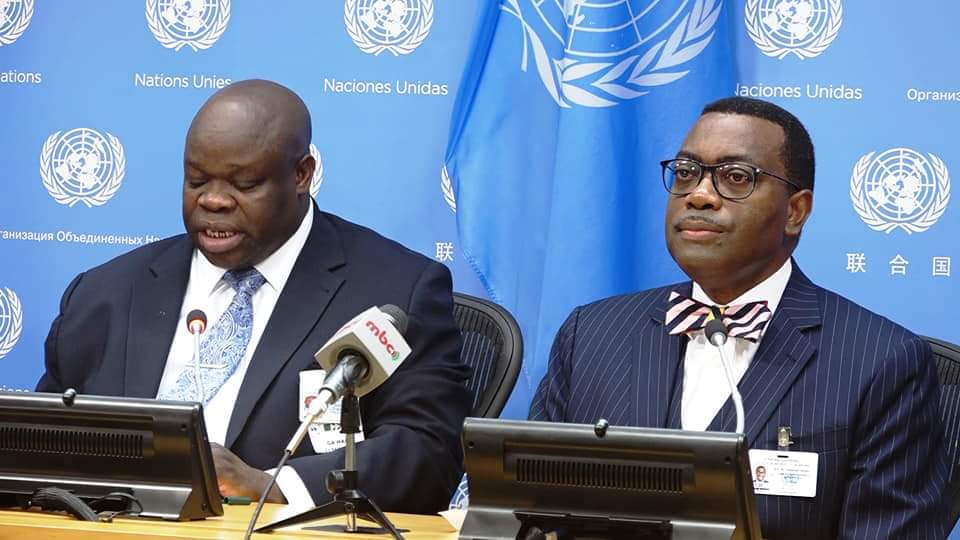
Malawi is among the first six Least Developed Countries (LDCs) to benefit from the member states’ request for US$450 million (about K328 billion) to fight climate change.
This was disclosed on Monday by the Chairperson for the Least Developed Countries for Climate Action Summit, Sonam Wangdi. He was speaking at a news conference at the United Nations.

“The LDCs are asking for an initial US$450m of investment over 10 years in the LDC Initiative for Effective Adaptation and Resilience (LIFE-AR) to help them deliver the adaptation and resilience work outlined in their vision.
“This money will support the countries which are the first to join the drive – Bhutan, Ethiopia, The Gambia, Malawi, Tanzania, and Uganda,” said Wangdi.
Malawi is Chair for the Least Developed Countries Group.
The LDCs also launched a 2050 Vision for a climate-resilient future which calls for every country to produce a national strategy to prevent global warming beyond 1.5°C. It also outlines measures the LDCs will take to push for climate resilience and net zero emissions by 2050.
“This involves channeling 70 per cent of climate funding to drive local level action, holistic climate change planning from local to national level, and ensuring climate solutions are centred on gender and social justice,” said Wangdi.
“Over one billion people in our countries live on the frontline of climate change despite doing the least to cause it. The current system is failing.
“The global response to climate change must rapidly transform to move the world onto a 1.5°C compatible pathway. Our goal is a more effective, more ambitious and more equitable global response to climate change, with no one left behind,” he added.
The LDCs are also championing two other long-term initiatives that will support the Vision: the LDC Renewable Energy and Energy Efficiency Initiative for Sustainable Development (LDC REEEI) and the LDC Universities Consortium on Climate Change (LUCCC).
As more than half of the people living in the LDCs currently do not have access to electricity, REEEI will focus on getting 100 per cent sufficient and affordable renewable energy to all LDC citizens by 2030 and 100 per cent electricity from renewable sources by 2050.
Minister of Natural Resources, Energy and Mining, Bintony Kutsaira, who was available at the press conference, said Malawi was not spared from the effects of climate change.
“Least Developed Countries are particularly vulnerable to the effects of climate change and climate variability and Malawi has not been spared,” said Kutsaira.
This year, 2019, is yet another year of record-breaking temperatures on climate disruption. In our region, earlier this year, Cyclones Idai and Kenneth left a devastating path of destruction affecting close to two million people and killing hundreds.
“In Malawi, approximately 975,000 people were affected with 87,000 people internally displaced. Total effects are estimated at over USD370.5 million with the housing sector hardest hit with close to 300,000 houses partially or fully destroyed,” the Malawi Minister said.
Kutsaira said the Climate Action Summit was an important milestone on the road to 2030 and 2050.
“We, therefore, look forward to the follow-up actions and strengthening of partnerships for climate action.
“In the spirit of leaving no one behind, we must ensure that our climate actions protect the most vulnerable if the sustainable development agenda is to succeed,” he said.
African Development Bank President, Akinwumi Adesina said the bank will mobilize global partners to provide US$250 million to help African countries including the most vulnerable to get insurance payout of US$1 billion by 2030 towards climate change.
The group of 47 Least Developed Countries represent over one billion people throughout Africa, Asia-Pacific and the Caribbean, who disproportionately suffer from the ever-increasing impacts of climate change, despite contributing the least to global warming.
Reported by Deogratias Mmana, Malawi News Agency (Mana) in New York, USA














